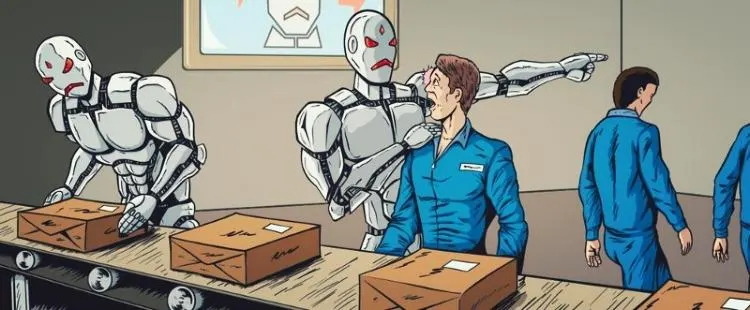The Transformation of Labor Markets: Artificial Intelligence and the Elimination of Traditional Jobs
Introduction: This article explores the profound impact of artificial intelligence (AI) on the workforce and its potential to disrupt traditional job roles. As AI technologies advance, automation and augmentation are causing shifts in labor markets, requiring adaptation and reevaluation of employment dynamics.
1. The Rise of Automation: Delve into how AI-powered automation is changing industries by taking over repetitive, manual tasks in manufacturing, customer service, and data entry. This trend is resulting in reduced demand for certain roles.
2. Augmentation and Human-AI Collaboration: Explore the concept of human-AI collaboration and how AI is being used to augment human abilities in fields like healthcare, finance, and research. Discuss the transformation of existing roles due to these AI collaborations.
3. Impact on Manufacturing: Examine the influence of AI and robotics on the manufacturing sector. The increased efficiency in production processes is decreasing the demand for certain factory jobs, while creating new roles for AI maintenance and management.
4. Effects on Customer Service: Discuss AI-driven chatbots and virtual assistants and their impact on customer service. This results in both job displacement and the emergence of AI trainer and monitor positions.
5. AI in Finance: Investigate the role of AI in finance and its effects on traditional financial roles. AI-driven trading algorithms, risk assessment, and fraud detection are reducing the need for human intervention.
6. The Learning Curve: Highlight the need for upskilling and retraining for individuals whose jobs are at risk due to AI automation. Explore the potential for education and training programs to bridge the skills gap.
7. Addressing Job Displacement: Discuss the importance of proactive measures by governments and organizations to support workers affected by job displacement. Initiatives like universal basic income and job transition programs are examined.
8. Ethical Considerations: Address the ethical challenges posed by AI-driven job displacement, including issues related to economic inequality, discrimination, and the ethical use of AI in the workplace.
9. Future Employment Prospects: Speculate on the future of work in an AI-dominated world, highlighting emerging industries and roles where human skills are irreplaceable, such as creativity, empathy, and complex decision-making.
Conclusion: As AI continues to reshape industries and job markets, individuals and societies must adapt to this transformation. By focusing on retraining, ethical AI deployment, and support systems for displaced workers, we can navigate these changes with greater resilience and fairness.

